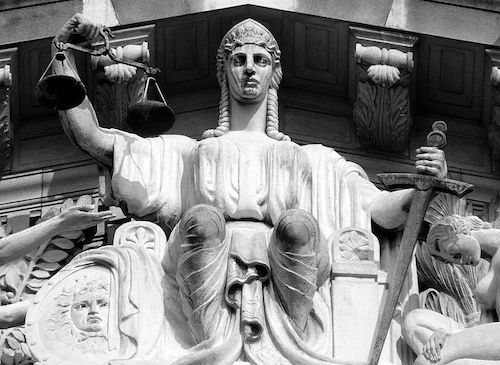 Culture & Ethics
Culture & Ethics
When Embryos Sue

Embryos have, through their father, sued for the right to be born. From the story in People Magazine:
The legal battle between Sofia Vergara and her ex-fiancé Nick Loeb over her frozen embryos continued Tuesday after a right-to-live lawsuit was reportedly filed against the actress on behalf of the fertilized eggs.
Court papers filed in Louisiana list the embryos as plaintiffs “Isabella” and “Emma,” according to the New York Post‘s Page Six. The alleged suit asks that Loeb be given full custody of the fertilized eggs so he can have them implanted in a surrogate and so the plaintiffs could receive a trust fund set up for them.
Responding to these reports, Vergara’s lawyers issued this statement to PEOPLE: “Next week the judge presiding over the case was to rule on Ms. Vergara’s request for sanctions against Mr. Loeb for refusing to comply with a court order, and on her motion for summary judgment-seeking dismissal of the case he filed against her, attempting to get control of pre-embryos that he created with Vergara.
How to decide? Here’s my Solomonic take:
- They are not “her” embryos. Vergara is the biological mother.
- As the biological father, Loeb has an equal claim to having a say over their fate as she does.
- The embryos are nascent human organisms — human beings — with their respective genetic makeup, to which both father and mother contributed equally.
- They are not fertilized eggs. Once an egg is fertilized, it ceases to exist, as does the sperm. That’s basic biology.
- There is no such thing as a “pre-embryo.” That is a political term invented to justify the instrumental use of embryos in research.
- Even if one accepts the use of the term, it stands for pre-implantation embryo, which doesn’t detract from the biological fact — as per embryology textbooks — that these are nascent human beings.
- This case has nothing to do with abortion. Vergara isn’t pregnant.
- Women have the right to abortion under the law because the courts have ruled that the law-and fathers-should not force a woman to gestate, at least prior to viability. No one is trying to force Vergara to gestate.
- These embryos were created for the purpose of being gestated to birth.
- In Louisiana, it is my understanding, the law grants personhood to embryos. Whether that allows the embryos to sue is an open question.
- When it comes to maintaining human beings, the benefit of the doubt should favor life rather than destruction.
- Since Vergara and Loeb come before the court with an equal claim to deciding the fate of the embryos, it seems to me the decision should favor Loeb since he wants them to be gestated to birth, which is why they were created and which the balancing of rights and interests should favor, given that the abortion question is irrelevant.
- Expect the science community to weigh in on the side of Vergara because this case could have an implied legal impact on destructive embryo research. The greater the moral value human embryos are perceived to have, the greater the potential chilling effect on embryonic research.
- The potential impact on embryo research should not affect the legal decision in this circumstance one way or the other.
- This case could also have an impact on the surrogacy question — particularly commercial surrogacy — since there are efforts underway to ban rent-a-womb contracts of the kind to which Loeb might resort.
The prospect of embryos suing illustrates the moral difficulties and conundrums wrought by reproductive technologies. The moral of the story: Think carefully before creating human life because the potential for complications are manifold.
Photo: Lady Justice, by Kok Leng Yeo, [CC BY 2.0], via Wikimedia Commons.
Cross-posted at The Corner.
